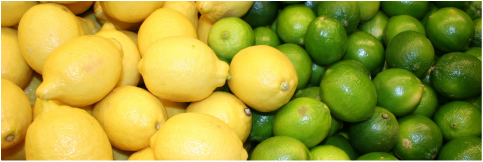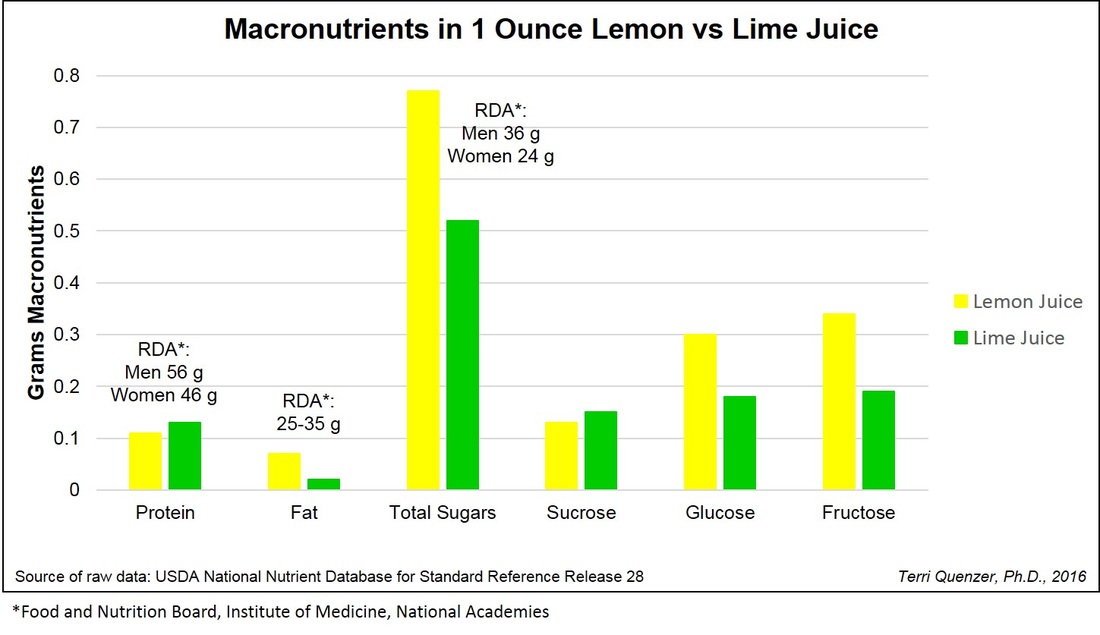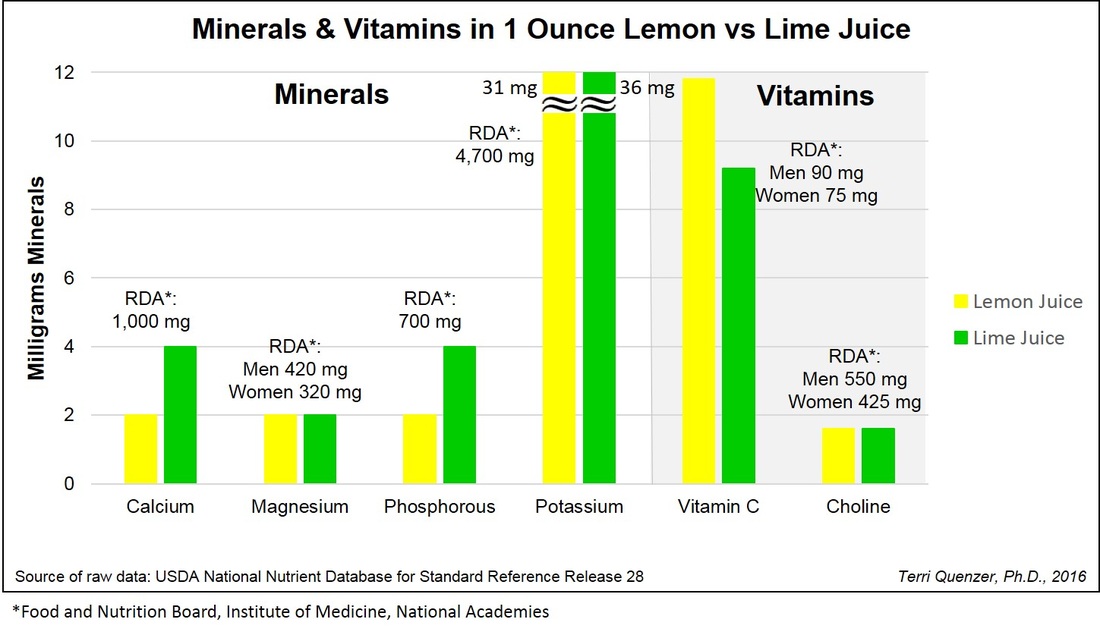While lemons and limes are very similar in many ways, it seems that other than guacamole, margaritas, and Thai food, most of the recipes and uses for a tart citrus fruit that I come across call for lemons or lemon juice. And if you have a sore throat, fresh-squeezed lemon juice along with honey in hot water is touted as the perfect elixir.
I love limes and typically substitute limes for lemons in any recipe that calls for lemons or lemon juice. To me, although the difference is subtle, limes have a slightly milder, sweeter, and less tart flavor that I just enjoy more than lemons.
And here’s the main reason I love limes so much. Limes don’t have any seeds. And that makes squeezing out the juice a heck of a lot quicker and easier because I don’t have to catch or pick out any seeds. Better yet, I don’t have to bite into any seeds that I missed when catching or picking out the seeds.
I got to wondering: are there any significant nutritional benefits to lemons that I’m missing out on by using limes almost exclusively? So I went to the USDA National Nutrient Database to find out. I compared the nutrients in one ounce each of lemon juice and lime juice, which is equivalent to two tablespoons.
I love limes and typically substitute limes for lemons in any recipe that calls for lemons or lemon juice. To me, although the difference is subtle, limes have a slightly milder, sweeter, and less tart flavor that I just enjoy more than lemons.
And here’s the main reason I love limes so much. Limes don’t have any seeds. And that makes squeezing out the juice a heck of a lot quicker and easier because I don’t have to catch or pick out any seeds. Better yet, I don’t have to bite into any seeds that I missed when catching or picking out the seeds.
I got to wondering: are there any significant nutritional benefits to lemons that I’m missing out on by using limes almost exclusively? So I went to the USDA National Nutrient Database to find out. I compared the nutrients in one ounce each of lemon juice and lime juice, which is equivalent to two tablespoons.
Considering that limes have always tasted slightly sweeter to me, I was surprised to find that lemon juice has a more sugar than lime juice. One ounce of lemon juice has 0.77 milligrams (mg) of total sugar while an ounce of lime juice has only 0.52 mg of total sugar. That’s the difference of about 3/16 and 1/8 of a teaspoon of sugar (1 gram of sugar = ¼ teaspoon), which is really hardly worth mentioning. However, that does mean that technically, lemon juice is actually sweeter than lime juice, yet probably not noticeably.
The nutrient profiles of both lemon and lime juice are very similar, with very small, almost negligible differences in the nutrients that are present. For example, an ounce of lime juice has twice the amount of calcium as an ounce of lemon juice, or put another way, has a whopping 200% more calcium. That sounds like a big difference. Yet there’s only 4 mg of calcium in an ounce of lime juice and 2 mg in an ounce of lemon juice. Compare those amounts to the Recommended Daily Allowance (RDA) for calcium, 1,000 mg, and the difference between 2 and 4 mg becomes negligible.
Note that while choline is not a vitamin, it plays a similar role to folate and B-vitamins and is important for normal brain function.
Probably the most significant difference is in the amount of vitamin C, in which case one ounce of lime juice has 9.2 mg of vitamin C, a little over ¾ the amount of vitamin C in one ounce of lemon juice, which has 11.8 mg. At close to 10% of the RDA for vitamin C, that difference is only slightly more significant.
So I would say that based on these numbers, one is not significantly better than the other. I’m comfortable that I’m neither gaining nor losing any significant benefits by substituting limes for lemons, and will continue to enjoy my favorite, limes.
Note that while choline is not a vitamin, it plays a similar role to folate and B-vitamins and is important for normal brain function.
Probably the most significant difference is in the amount of vitamin C, in which case one ounce of lime juice has 9.2 mg of vitamin C, a little over ¾ the amount of vitamin C in one ounce of lemon juice, which has 11.8 mg. At close to 10% of the RDA for vitamin C, that difference is only slightly more significant.
So I would say that based on these numbers, one is not significantly better than the other. I’m comfortable that I’m neither gaining nor losing any significant benefits by substituting limes for lemons, and will continue to enjoy my favorite, limes.






 RSS Feed
RSS Feed